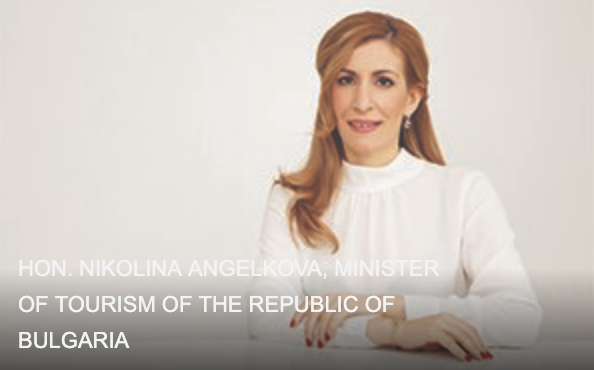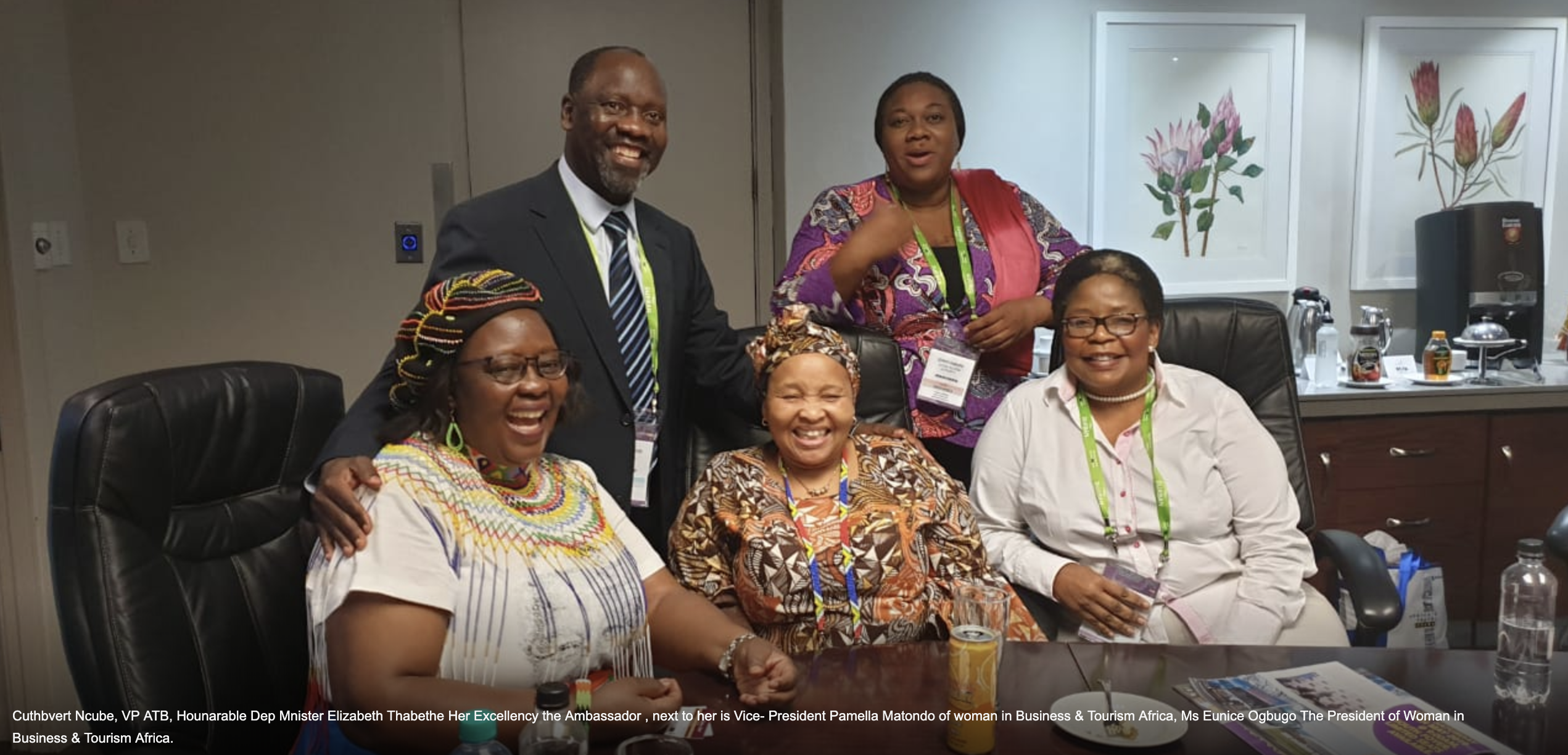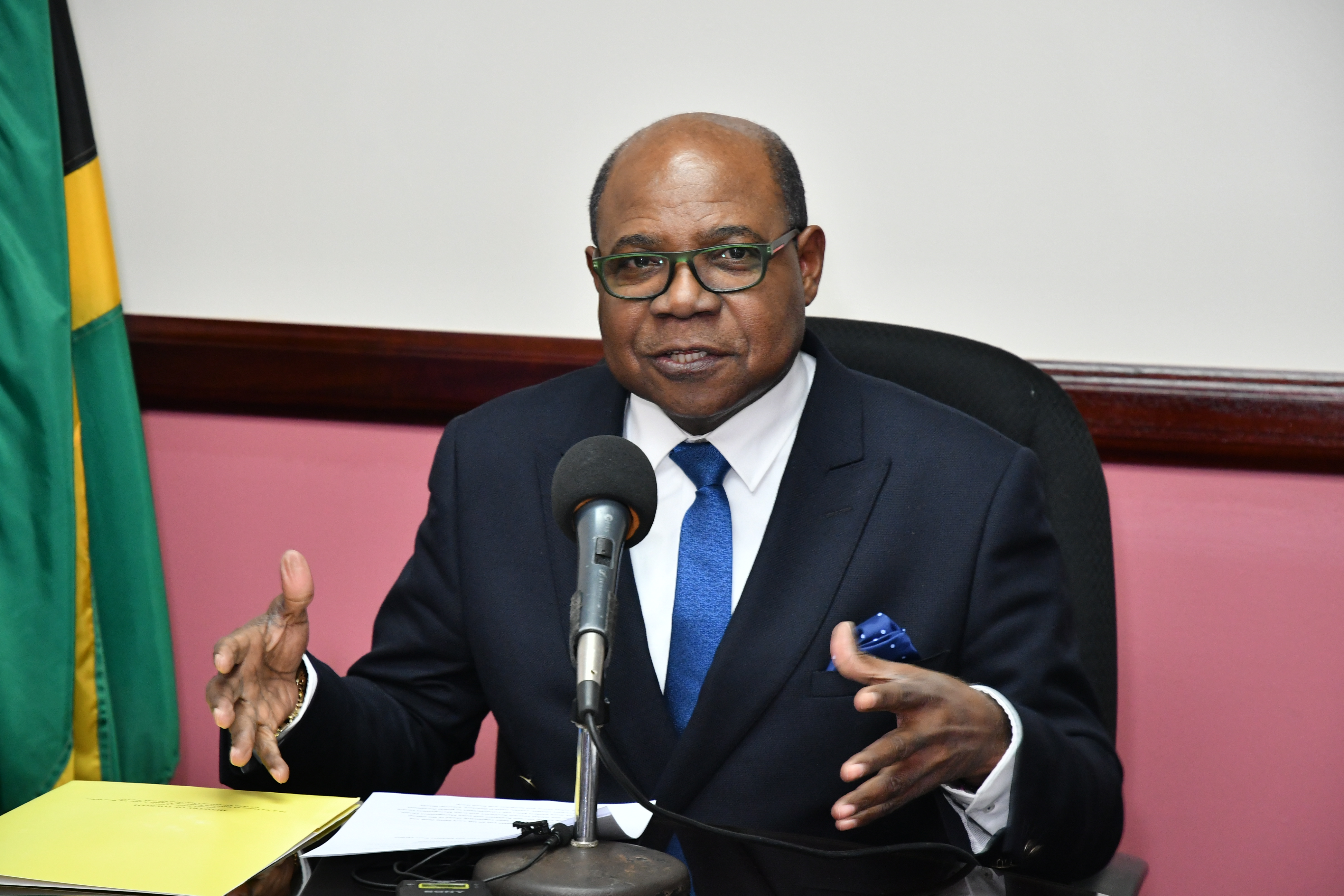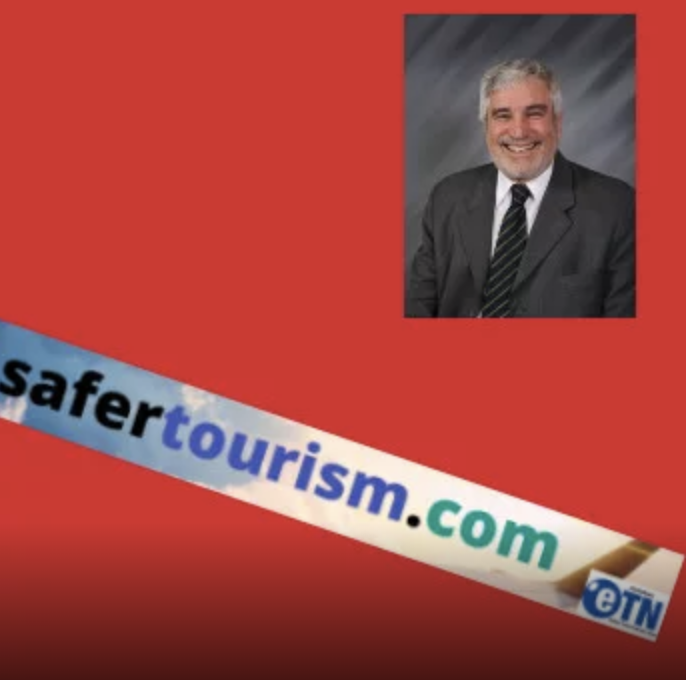

Investing in Tourism Sustainability Conference: Dr. Taleb Rifai Chair
The inaugural Investing in Tourism Sustainability Conference will open in Sunny Beach, Bulgaria Ma 30-31. It will focus on investment in tourism in Bulgaria and Southeast Europe.
The Tourism Sustainability Conference will serve as a Tourism Investment platform bringing together Policy Makers, Tourism Ministers, Project Owners, Investors, and the tourism and hospitality business sectors from Bulgaria, Southeast European countries and global tourism stakeholders.
The event will be hosted by the Ministry of Tourism of the Republic of Bulgaria in partnership with ITIC and InvesTourismwhich is under the Chairmanship of Dr. Taleb Rifai the Former Secretary-General of the UNWTO
It will contribute to shaping the future of travel and tourism by opening new business opportunities through innovative moves. This event will be focused on tourism development and investment in Bulgaria and Southeast European countries while addressing the issues and challenges faced by the region.
The inaugural of this Conference in Sunny Beach, Bulgaria will attract over 400 public and private sector leaders interested in investment and development of the travel and tourism sector as a prime engine for future economic growth and as a model that can promote self-employment among the local communities in both Bulgaria and Southeast European destinations.
As pointed out by Hon. Nikolina Angelkova, Minister of Tourism of the Republic of Bulgaria: “Tourism in this region of Europe is growing rapidly with over 120 million tourists in 2018 and total tourism receipts of USD 118.8 billion which accounted for around 11.7% of total GDP for the Southeast Europe countries. Bulgaria alone attracted over 9.2 million tourists and total tourism receipts was USD7.6 billion last year. Moreover, the enormous development potentials lying untapped within Southeast Europe represents a grand avenue for new investment opportunities within travel and tourism acting as prime engine of future economic growth and as a model of development that can promote self-employment among the local community in both Bulgaria and the Southeast European destinations.”
The conference will also be a forum for participants to discuss opportunities of mutual interest and initiate potential partnerships and alliances in investments in sustainable tourism developments up to projects’ fruition.
The conference has garnered high interest in the region and internationally and has attracted the participation of regional and Mediterranean Tourism Ministers namely:
- Mr. Gari Capelli, Minister of Tourism of Croatia
- Mrs. Elena Kountoura, Minister of Tourism of Greece
- Mr. Rasim Ljajić, Deputy Prime Minister and Minister of Trade, Tourism and Telecommunications of Serbia
- Mrs. Majd Shweikeh, Minister of Tourism and Antiquities of Jordan
- Mr. Kreshnik Bekteshi, Minister of Economy Republic of North Macedonia
- Mr. Haitham Mattar, CEO Ras Al Khaimah Tourism Development Authority
- Mrs. Rania Al-Mashat, Minister of Tourism of Egypt
- Mr. Konrad Mizzi, Minister of Tourism of Malta
This demonstrates the high level of commitment and involvement of the respective Governments and Policy Makers to develop the tourism industry as the Key engine of growth of the economy in this region.
The other main guests will feature Her Royal Highness Princess Dana Firas who is also the President of the Board of Directors of the Petra National Trust and a UNESCO Goodwill ambassador, Dr. Taleb Rifai, Former Secretary-General of UNWTO. The Conference will also a line-up of high-caliber speakers and delegates such as Tourism Leaders, International Hotel Brands, Tourism Project Owners (SEE) having new projects to showcase, Investors, Investment Banks, Private Equity Firms to network and making new partnerships.
The event will be moderated by Rajan Datar, an award-winning broadcaster and presenter of the BBC.
The Partners of the events are the Ministry of Tourism of Bulgaria, ITIC, InvesTourism and Helena Resort.

South Africa Tourism Ministry and African Tourism Board Officials meet and agree with SA President Cyril Ramaphosa
African Tourism Board Vice President Cuthbert Ncube today at Indaba in Durban met with the Honorable Deputy Minister of Tourism for the Republic of South Africa, Elizabeth Thabethe; Her Excellency Ms. Lulu Marry Theresa Xingwana, the South African Ambassador to Ghana, Vice President Pamella Matondo of Women in Business & Tourism Africa; and Ms. Eunice Ogbugo, the President of Women in Business & Tourism Africa.
They threw their weight behind a more cohesive approach within the Tourism sector, as this is the only industry that breaks the barriers by its economic factors.
Deputy Minister of Tourism Thabethe previously served as the Deputy Minister of Small Business Development. She was born on September 26, 1959 and has been a Member of Parliament since 1994. She completed a Certificate in Economics from the University of South Africa (UNISA) and completed her Advanced Diploma in Economics from the University of the Western Cape (UWC). She was a Co-coordinator of the East Rand Women’s League RTT structure; a member of the ANC National Parliamentary Caucus, Gauteng Provincial Whip; and a House Whip from 1996 to 2004. She chaired the Portfolio Committee on Environmental Affairs and Tourism between 2004 and June 2005 but was also a Member of the Committees on Labour and Trade and Industry.
All agreed that tourism plays an important roll on local, national, and international levels, although it shouldn’t form the core element of a community’s economy, but it should be better suited to play a supplementary role to help diversify community economic activities.
They further agreed tourism has become a source of income generation for many communities seeking ways to improve their livelihoods.
The Deputy Minister pointed out that tourism and its impacts is a multidimensional phenomenon that encompasses economic, social, cultural, sports, ecological, environmental, and political forces.
The sense of community plays an important role in fostering communities and may enhance long-term sustainability as a broad basis for Tourism development planning.
The Deputy Minister’s sentiments were echoed by the ambassador, who said that Africa should echo with one voice as a united force and in particular in bringing their synergies together and breaking the barriers of segmentation.
The Deputy Minister has vast experience both in the public and private sectors.

Unrelated, but sharing the basic concept and theme of the African Tourism Board as a one destination Africa, the idea of such a United Africa was also mentioned by the President of the Republic of South Africa His Excellency Cyril Ramaphosa in his closing remarks for Indaba in which he emphasized the need of bringing Africa’s jewels in one basket and packaging them. He said Africa has the most majestic scenery from the ancient Sahara desert, to the mountain highlands, to the Savan grasslands, to the southern continent where the Indian Ocean meets the Atlantic in a confluence of beautiful water activity, and to the 135 World Heritage sites in Africa.
The President emphasized the need to embrace Education Tourism and Health Tourism as well as Religious Tourism as a basis for people to build their travel around.
The President said, “Tourism is a new gold ready to be explored in Africa. Tourism is an industry that has tremendous potential for further growth and job creation.”
The African Tourism Board is planning to follow up with the Deputy Minister shortly to explore her support of ATB.

Jamaica’s Tourism Minister will deliver remarks at launch of Caribbean Hotel Investment Conference and Operation Summit
Jamaica’s Tourism Minister, Hon Edmund Bartlett will deliver remarks at the launch of the Caribbean Hotel Investment Conference & Operations Summit (CHICOS).
The event brings together nearly 300 regional and international investors and operators, as well as the region’s leading decision makers.
Attendees network and discuss the region’s markets and possibilities, while analyzing the most important trends that can impact their investment decisions.
The 2019 staging will take place in Montego Bay, Jamaica from November 14 – 15.
WHAT: Launch of the Caribbean Hotel Investment Conference and Operations Summit
WHEN: Tuesday, May 07, 2019 beginning at 10:00 a.m.
WHERE: The Pavilion, Terra Nova All-Suite Hotel, 17 Waterloo Rd, Kingston

Safertourism.com: Tourism Security will be an issue in 2020
The 26th Las Vegas International Tourism Safety and Security Conference in 27 years was concluded last week. Next year a whole new concept of tourism security conferences is in the making.
The new face in 2020 will reflect the changing times as tourism security continues to be an issue around the world.
The weekly riots in Paris and the recent terrorist attacks in Sri Lanka demonstrate once again just how sensitive the tourism and travel industries are to the needs of security and safety (S&S). Professionals in S&S debate these issues with a great deal of emotion not only among themselves but also with their colleagues from all aspects of the travel and tourism industry. Slowly the travel industry’s many components are becoming ever more sensitive to the fact that every S&S decision is a business decision. Because not everyone can attend a tourism conference in this month’s issue of Tidbits, we present to you some of the ideas regarding tourism and security developed over the past two decades.
The ideas found below, come from past conferences and are meant to stimulate creative thought among those who work in the travel industry. These suggestions are not meant to be specific for any one particular locale or business nor are they an exhaustive list of problems or solutions. When thinking about security for your place of lodging, community or tourism business, consider some of these ideas:
-Define the problem(s). All too often tourism and travel professionals are so overwhelmed by issues of S&S that they fail to define which problems are central for their locale or business. At past tourism conferences some of the major safety and security problems the delegates defined were: the need to protect tourists not only from crimes against them but also from acts of terrorism. Delegates addressed safety issues such as: outbreaks of infectious diseases such as meningitis, ways to protect tourists from legionnaires disease and aids, methods to assure pure food and water. Speakers and delegates from around the world agree that for tourism to prosper, it must create travel possibilities in which the problems such as: diarrhea and typhoid cease to threaten the visitor. The delegates also recognized that the hospitality industry needs to be prepared to deal with natural disasters such as earthquakes and floods, as well as man-made problems such as traffic accidents and equipment failures. It was suggested that as the world is so varied, that tourism professionals must define those problems that are most pressing for their own region and/or business and develop methodologies that fit local budgets and cultures.
-Identify problems that will impact tourism/travel moving into the third decade of the twenty-first century. Not only should current problems be addressed but it behooves the S&S professional to anticipate problems that may not yet have occurred. Past Conference speaker have identified some of the problems that may also be future problems. For example, over the past years speakers and delegates have spoken about the need to insure consumer privacy while still maintaining a proper level of safety and security, determine what are acceptable levels of risk, develop cross-cultural safety and security standards, and demonstrate the impact of safety and security to administrator’s worried about profitability. The issue of personal privacy has become especially important in an age of cyber breaches and identity theft.
– Relate issues of safety and security to travelers’ choice of destination. To demonstrate the importance of S&S to the bottom-line, S&S professionals need to demonstrate how safety and security issues impact the traveler’s choice of destination, develop correct and universally accepted measurement standards and be prepared for a range of threats such as: attacks by youth gangs, political conflicts that become acts of violence against the travel and tourism industry, acts of money laundering, internet fraud, and ever-evolving high-tech crimes.
– Determine who has responsibility to protect, inform, and to educate the public. All too often, the travel and tourism industry has simply assumed that S&S is someone else’s responsibility. Over the almost past three decades our speakers have spoken about issues such as:
- Do S&S responsibilities fall only to private enterprise or should governments also be involved?
- How much victim assistance should hotels, attractions and restaurants provide when an incident occurs?
- Does the tourism industry have a right to seek assistance from other sources such as governments and still maintain its independence as a private industry?
- Is the tourism industry private, public or a hybrid industry?
- Who should define and implement travel and tourism victim protection and assistance?
- Who will oversee the implementation of these policies and determine if they are effective?
Regarding tourism safety and security past speakers have also formulated such concerns as:
- How much about a security situation should be made public?
- How is a balance created between educating the public, working with the media and still not harming the local travel and tourism industry?
The above questions are important research topics and it has been the conference’s hope that the ideas expressed in this current conference and in years passed will lead to a number of practical solutions including:
- The need to train all people working in the travel and tourism in matters of safety and security, whom and how much training is needed?
- Assuring that travel and tourism officials understand the risks involved in ignoring these problems,
- Sensitizing law enforcement agencies and the media to the issues of travel safety and security,
- Developing model crisis plans, devising and adopting international signs and pictograms that relate to tourism safety and security,
- Developing an inventory of the best practices in the field,
- Studying and then implementing “victim advocacy” programs as used in the travel and hospitality industry from around the world.”
The challenge to the travel and tourism industry will be to translate these ideas into actions, and to take turn the hope of a safer and more secure tomorrow in to a reality. In 2020 tourism security will enter will be prepared to create new lessons and ways that tourism professionals can meet not only the challenges of yesterday but also of tomorrow.
More on Dr. Tarlow and travel & tourism security: www.safertourism.com
